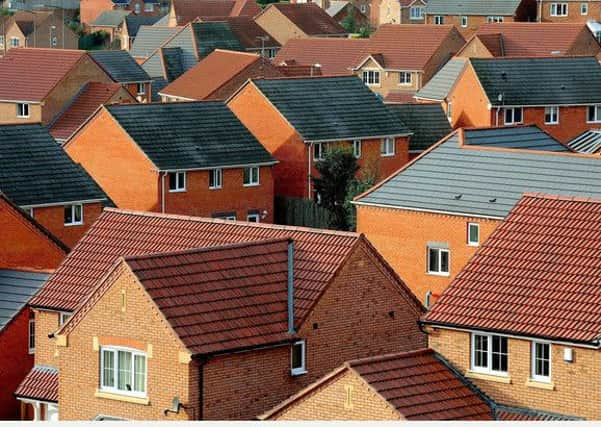City house prices see double-digit annual growth in June despite Brexit vote


City property values in June were 10.2% higher than a year earlier - matching the annual rate of price growth seen in May - property analysts Hometrack found.
But its report also said that both sales and price growth in the housing market are expected to cool in the second half of 2016 - with London bearing the brunt of any slowdown.
Advertisement
Hide AdAdvertisement
Hide AdThe 10.2% rate of annual house price growth in June is stronger than a 6.9% year-on-year price uplift seen in June 2015.
Hometrack said a surge of investors piling into the housing market earlier this year has helped to keep prices pushing upwards. On April 1, a stamp duty hike was introduced for buy-to-let investors, and there were signs of investors rushing to snap up properties before the tax increase came into force.
The report tracks house price movements across the UK’s 20 biggest cities. Bristol remains the fastest-growing city in the UK for house price increases, with a year-on-year growth rate of 14.7%, Hometrack said.
But year-on-year house price growth in London and in other cities in the South of England, such as Cambridge, Southampton and Bournemouth started to slow between May and June, the report said.
Advertisement
Hide AdAdvertisement
Hide AdOn the other hand, large cities in the North and Scotland such as Glasgow, Manchester, Liverpool and Leeds have registered strong growth in the last quarter on the back of more affordable prices compared with the South, lower interest rates, improving local economies and higher returns for landlords making purchases attractive to investors.
Hometrack said sales momentum and house price growth in regional cities appear to have held up over the referendum period.
By contrast, the tougher conditions facing the London market ahead of the vote have resulted in rising supply and relatively fewer sales - pointing to slower house price growth in the months ahead.
London has been seen as the engine of the housing market recovery in recent years, attracting strong interest from overseas property investors.
Advertisement
Hide AdAdvertisement
Hide AdRichard Donnell, insight director at Hometrack, said: “The headwinds that were facing the London market in the lead-up to the EU referendum have intensified on the back of the vote to leave and are resulting in slower sales rates.
“It is still early days, and seasonal factors also need to be considered, but the growth in new listings and slower sales points to slower price growth in the months ahead.”
He said the growth in homes coming on the market in London reflects a mix of new homes coming through from London’s development pipeline and investors selling some of their properties.
Mr Donnell continued: “In contrast, in many large regional cities, sales appear to have held up thanks to a combination of much better housing affordability, improving economic growth and record low mortgage rates helping to stimulate demand.”
Advertisement
Hide AdAdvertisement
Hide AdHe said it is “still very early days” to assess the full impact of the vote to leave the EU on the housing market.
But Mr Donnell added: “Our view remains that sales volumes are likely to slow and price growth will moderate over the second half of the year.
“The severity of a slowdown will depend upon the response of consumers and businesses to the uncertainty created by the decision to leave the EU and the impact this has on the economy. The early market activity data confirms our view that London will bear the brunt of any slowdown.”
Here is how house prices have grown across the UK’s major cities in the year to June, according to Hometrack, with the average house price in June followed by the percentage annual increase:
• Bristol, £253,400, 14.7%
• London, £476,800, 13.7%
• Cambridge, £411,800, 11.5%
• Southampton, £214,600, 9.7%
• Portsmouth, £215,700, 9.3%
• Manchester, £147,400, 9.0%
• Oxford, £407,800, 8.7%
• Birmingham, £143,300, 8.3%
• Bournemouth, £265,000, 8.0%
• Nottingham, £137,800, 7.8%
• Leeds, £151,800, 7.6%
• Leicester, £151,800, 7.5%
• Cardiff, £188,700, 6.8%
• Liverpool, £112,200, 6.1%
• Sheffield, £128,800, 4.3%
• Glasgow, £113,400, 3.7%
• Newcastle, £126,400, 3.6%
• Edinburgh, £203,500, 3.2%
• Belfast, £122,700, 2.6%
• Aberdeen, £179,900, minus 8.2%